|
As I walked down the driveway to my boss's office, I saw something that looked impossible. In a small crack between the foundation of the building, the driveway, and the sidewalk there was a stunning, deep pink petunia blooming as though it was living in perfect surroundings. Apparently, a small seed from the pot of flowers that sat on the front stoop of the house the year before had blown into the crack and lodged itself there for the winter. Its perseverance paid off, and when the warm weather began, the seed shell broke open, and roots grew. Those roots produced the petunia plant and the beautiful flower.
This amazing picture gave me great hope as I began to think about other seeds that have been planted. In Scripture, the word seed has different definitions. If we go back to the days of Abram in Genesis, we see that the Lord referred to Abraham's descendants as seed. "Yahweh brought him (Abram) outside his tent and said, 'Gaze into the night sky. Go ahead and try to count the stars.' He continued, 'Your seed will be as numerous as the stars!'" (Genesis 15:5 - TPT) Not only can seed refer to descendants, but it can also refer to the Word of God. The seed is planted in the "ground" of our hearts. God designed all of us to produce fruit when His Word is planted and germinates. He also expects us to partner with Him in seed sowing. "Sow your seed in the morning, and at evening, let your hands not be idle." (Ecclesiastes 11:6a) The apostle Paul explains to the church at Corinth that we are servants of God, each with a task. "I planted the seed, Apollos watered it, but God has been making it grow." (1 Corinthians 3:6) May I encourage those of you who are praying for prodigals to come home? When I think of them, I think of the seeds that they carry. I am well aware that parents, grandparents, siblings, and friends intentionally plant seeds in their loved ones who have left the faith or who never fully embraced it. Let us remember that once a seed is planted, it does not go away! In the natural world, the shell of a seed must be broken before it begins to root. When I think of the petunia seed that brought forth the beauty held within it in an almost impossible situation, it reminds me that the seeds planted in hard hearts of God's children will also beak forth and produce fruit. Jesus, when he told those He ministered to not to worry, He pointed to the flowers. "...See how the flowers of the field grow. They do not labor or spin. Yet I tell you that not even Solomon in all his splendor was dressed like one of these." (Matthew 6:28-29) Perhaps our prayers for the prodigals in our lives should include asking the Lord to break open the shells surrounding the seeds that are already in their hearts. Then, let us pray that those seeds planted by our prayers are used to soften our loved ones' hearts. When the ground around a seed is soft, we have optimum conditions for growth. As the seeds begin to break and root, God will help them to grow. Be encouraged! God is a gardener. The first family was placed in the Garden of Eden. God continues to place each of us in ideal growing conditions for the fruit that He desires to harvest. He is all about collaborating with us to break up the hard ground so that the fruit of righteousness is forthcoming. What we believe is directly related to how we behave. That is why, in my opinion, one of the most important Scriptures in the Bible comes from 2 Corinthians 10:5. We are told by the apostle Paul, "We demolish arguments and every pretension that sets itself up against the knowledge of God, and we take captive every thought and make it obedient to Christ." (NIV) The language in The Passion Translation is much more graphic. "We can demolish every deceptive fantasy that opposes God and break through every arrogant attitude that is raised up in defiance of the true knowledge of God. We capture, like prisoners of war, every thought and insist that it bow in obedience to the Anointed One."
Of course, those from the demonic realm understand the importance of the above Scripture and attempt to place false information into the minds of Christians so that they act in a way that confirms agreement with the wrong kingdom. Satan wants us to believe that we are in chains. Those chains can look like the inability for us to get out of the cycle of addiction, illness, poverty, or shame, to name a few. In essence, when we are caught in an ungodly cycle of belief, we will not take the steps necessary to release the chains that bind us, so we are free. How many of us honestly believe the truth of God's promises and act accordingly? I will confess this is a challenge for me, and yet, I am determined to declare God's truths and walk in them. An exercise we are encouraged to do in the inner healing ministry I belong to is this: Draw two boxes. In the first box write any lies or ungodly beliefs that you may have. Draw a wide frame around this box and write in it the behaviors that have resulted from the lies you believe. In the second box, write the truths that God has given to you. Draw a wide frame around it as well and write the behaviors that result from the truths on it. What is written in the second box is God's desire for your life. Now, I would like to share some truths and promises from Scriptures for you to meditate on. All of these are from the NIV. John 8:36 - "So if the Son sets you free, you will be free indeed." Ephesians 1:4-5 - "For He chose us in Him before the creation of the world to be holy and blameless in His sight. In love He predestined us for adoption to sonship through Jesus Christ, in accordance with His pleasure and will." 2 Corinthians 5:17 - "Therefore, if anyone is in Christ, the new creation has come: The old has gone, the new is here!" Colossians 1:13-14 - "For He has rescued us from the darkness and brought us into the kingdom of the Son He loves, in whom we have redemption, the forgiveness of sins." Deuteronomy 28:13 - "The Lord will make you the head, not the tail. If you pay attention to the commands of the Lord your God that I give you this day and carefully follow them, you will always be at the top, never at the bottom." Romans 8:37 - "No, in all things we are more than conquerors through Him who loved us." Philippians 4:13 - "I can do all this through Him who gives me strength." The above truths will help establish a good belief system in our minds. Remember, if we believe that we do not have the power to break the chains of the enemy, we will continue to live in those chains. The truth is what sets us free. As we meditate on these truths, we unlock freedom, joy, and power. Have you wondered what has happened to the Bible-believing, Christ-loving people of the United States? They are not gone! Perhaps they are a remnant; however, they are alive and well and are praying and working in the background. Proof of this recently happened in two applications.
I have written before about the power of the tongue for good or evil. The tongues of many Believers were used at the United States Capitol at the end of April for the good of our country. Volunteers read the entire Bible around the clock. Established in 1990 by Dr. John Hash and Dr. Corinthia Boone, the event is meant to "draw attention back to the Bible." The current organizers of this event, Seedline International, say that this "tradition recognizes the Bible is at the heart of America's founding principles, and should be voiced at the heart of the nation." Many do not realize the significance of this yearly event. By proclaiming God's Word at the seat of our national government, we are coming into agreement with the Kingdom of God and reaffirming our commitment to the Lord's truth. Another significant event that has been taking place since 1952 is the National Day of Prayer. President Harry Truman signed into law a bill calling for the annual observation of this day of prayer on April 17, 1952. There had been spotty observations of national prayer since 1775 when the Continental Congress announced "a day of public humiliation, fasting, and prayer." George Washington proclaimed a day of prayer and thanksgiving in 1789. In 1863, Abraham Lincoln found the need for a national day of humility, fasting, and prayer during the Civil War. Thankfully, we can count on having prayer for our nation yearly because of the law passed by the Congress and signed by our president. This year's National Day of Prayer was based on James 5:16. "...for tremendous power is released through the passionate, heart-felt prayer of a godly believer!" (TPT) Rev. Samuel Rodriguez, co-host of this year's event, said that "our prayers for our nation are more important now in 2023 than ever before in American history...The 2023 National Day of Prayer carries an incredible amount of spiritual and moral weight as it pertains to the advancement of this idea we call the American experiment." The National Day of Prayer leadership gave some suggestions on how to pray. "We are praying for an awakening in America. We are praying for unity. We are praying for repentance. We are praying for hope; we are praying for truth to overcome the lies, for love to silence hate, and for America's problems to become America's testimony." Revelation 5:8 tells us, "...the four living creatures and twenty-four elders fell down before the Lamb. Each one had a harp, and they were holding golden bowls full of incense, which are the prayers of God's people." Our prayers and declarations of God's Word will make a difference in the personality of our country. Let us praise God that are godly traditions are still being carried out in the United States and that the remnant of Believers will fill the bowls in heaven with their prayers that will return us to our godly foundations. In 1948, Iyar 5 on the Hebrew calendar, and May 14 on our western calendar, the nation of Israel was born. David Ben-Gurion, Israel's first prime minister, stood in a Tel Aviv art gallery to read the nation's Declaration of Independence and declare that the Jewish State would be called "Israel." Long ago, God chose the Jewish people to demonstrate His promise-keeping character to the world.
If we look back to the time when the Israelites crossed into the Promised Land and drove out the unrighteous nations, we see that they forgot the way God provided for, empowered, and protected them. They quickly rebelled and angered the Lord to such a degree that He declared, "I will scatter you among the nations..." (Leviticus 26:33) Indeed, this is what happened several times. AD 70 was known for a huge dispersion when the Romans destroyed Jerusalem and scattered the Jews around the world. The Jewish people are tenacious and clung to the promises of God through their years of exile. Amos 9:14-15 was one of these promises. "I will bring my people Israel back from exile. They will rebuild the ruined cities and live in them. They will plant vineyards and drink their wine; they will make gardens and eat their fruit. I will plant Israel in their own land, never again to be uprooted from the land I have given them..." For centuries, the Jews made aliyah (immigration to Israel). When Germany initiated World War II, aliyah came to a holt and six million Jews were killed before the war ended. The importance of having a homeland for the Jews became obvious. So it was, in 1948, that the Jewish dream of having their homeland restored became a reality. The young nation would immediately face a battle as five surrounding Arab nations with well-trained soldiers and abundant equipment came against them. It was only through a miracle of God that Israel prevailed. The question asked in Isaiah 66:8 was answered with a resounding "Yes!" "Can a country be born in a day, or a nation be brought forth in a moment?" Since 1948, Israel has been challenged by enemy forces on several occasions. With God's help they have prevailed and built Israel into one of the most prosperous nations in the world. Israel's first prime minister, David Ben-Gurion, said it well: "In Israel, in order to be a realist, one must believe in miracles!" And the God of Abraham, Isaac, and Jacob is just that--He has been their consistent help and deliverer. He has guided them and helped as Israel transformed a once inhospitable region into a garden. According to the book Israel, 75 Years of Miracles, this small nation has "become a world leader in science and technology and in health and medicine." We should celebrate this 75-year anniversary with the people of Israel as this nation is God's demonstration of His faithfulness and love for a people He calls His own. God continues to gather His people back from the lands where they were scattered. The covenant He made with Abraham has been kept, and the land and people will continue to thrive beyond this Diamond Jubilee. Why would He do it? Why would King Jesus leave His throne in heaven to come to earth where He would be ridiculed, disrespected, and hunted down to be brutally murdered? Jesus knew exactly what would happen to Him. Psalm 22 author, King David, a member of the lineage of Jesus (Matthew 1:6-7), wrote a prophetic picture of the Cross of Christ. According to a footnote in The Passion Translation, thirty-three of the prophecies from this Psalm were fulfilled when Jesus was on the Cross. That would be one for each year of His life.
The first verse of Psalm 22 is a question that was asked by Jesus as He hung on the Cross. "My God, my God, why have you forsaken me?" Verse 6: "But I am a worm and not a man, scorned by everyone, despised by the people." It is interesting to note that the Hebrew word for worm is "tola," which is also the word for crimson. There was a worm in the Middle East that bled crimson when it was crushed. Jesus was comparing Himself to this worm. Verse 12: "Many bulls surround me; strong bulls of Bashan encircle me," The root word for bull means "to break or destroy." The word Bashan is a place but is also a word for serpent. David is describing the demonic spirits that would come against Jesus. Verses 16-18: "...They pierce my hands and my feet. All my bones are on display; people stare and gloat over me. They divide my clothes among them and cast lots for my garments." Verses 23-24: "You who fear the Lord, praise Him! All you descendants of Jacob, honor Him! Revere Him, all you descendants of Israel! For He has not despised or scorned the suffering of the afflicted one; He has not hidden His face from Him but has listened to His cry for help." Jesus is the one who cried to Father God for help. Verses 27-28: "All the ends of the earth will remember and turn to the Lord, and all the families of the nations will bow down before Him, for dominion belongs to the Lord, and He rules over the nations." Can Jesus find some comfort in knowing that His suffering will bring the people of the world into relationship with His Father? Verses 30-31 (TPT): "His spiritual seed shall serve Him. Future generations will hear from us about the wonders of the Sovereign Lord. His generation yet to be born will glorify Him. And they will all declare, 'It is finished!'" Notice the bookends for this Psalm. While Jesus was on the Cross, around 3:00 in the afternoon He cried, "My God, my God, why have you forsaken me?" (Matthew 27:46) Having accomplished on the Cross all that Father God sent Him to do on the earth, Jesus declared, "It is finished!" (John 19:30) The death of Jesus completed the work of salvation for His Bride, The Church. In His foreknowledge of what He would have to endure, Jesus asked His Father if He would take away His cup of suffering. (Matthew 26:59) But His priority was to complete His mission--to demonstrate the love of God. It was not the nails that held Jesus to the Cross; it was His love for us. We are the recipients of such love and can celebrate the resurrection of Jesus today. As the apostle Paul says, "Your hearts can soar with joyful gratitude when you think of how God made you worthy to receive the glorious inheritance freely given to us by living in the light. He has rescued us completely from the tyrannical rule of darkness and has translated us into the kingdom realm of His beloved Son. For in the Son all our sins are canceled, and we have the release of redemption through His very blood." (Colossians 1:12-14 - TPT) Hallelujah!! The word rubble was used by the Old Testament prophets to describe what was left of towns that were being overtaken by the enemy. When Nehemiah and the Jews returned to Jerusalem and attempted to rebuild the city walls, they were harassed by Sanballat, an official of a surrounding nation who was angry at the progress they were making. His words were meant to ridicule and discourage them. He shouted, "What are those feeble Jews doing? Can they bring the stones back to life from these heaps of rubble—burned as they are?” (Nehemiah 4:2)
This story came to my mind when I read the news about the birth of a baby girl under the rubble of the earthquake in northern Syria. A 7.8-magnitude quake hit parts of Turkey and Syria on February 6. In the town of Jinderis, Syria, an entire family, except the pregnant mother, was killed when their five-story apartment building came down on top of them. Ten hours after the quake, search and rescue teams heard the sound of a baby crying and dug her out of the rubble. What they found was amazing! Apparently, the baby's mother, Abu Hadija, gave birth to her while conscious and still buried in the rubble. Abu died before rescuers found her. The child was discovered with the umbilical cord still connected to her mother. Destruction and rubble would not stop the birth of this baby. She was taken to the hospital cold and barely breathing, with her body covered in bumps and bruises. However, she is recovering and has been aptly named Aya, meaning "a sign from God." Indeed, this is a sign from God that new life can come from the rubble around us, whether physical or spiritual. With death and destruction everywhere, God demonstrated His mercy and love in the birth of a child who will be part of the next generation to rebuild life. Processing great losses such as have occurred in Turkey and Syria is not easy. However, we can be encouraged by the stories of loss and recovery in the Bible. Job is one such story. Job's faith and trust in God was strong throughout an extremely difficult season. He had a proper perspective on the sovereignty of the Lord though in one day, he lost his livestock, his children, and their home. Yet, Scripture says, "At this Job got up and tore his robe and shaved his head. Then he fell to the ground in worship and said, 'Naked I came from my mother's womb, and naked I will depart. The Lord gave and the Lord has taken away; may the name of the Lord be praised.'" (Job 1:20-21) Job endured more losses and trials until God restored his prosperity and "gave him twice as much as he had before." (Job 42:10) There is a multitude of people in Turkey and Syria who do not know the Lord. I am sure they are overwhelmed with shock and trauma from all of the death and loss that came with the earthquake. How can we help? Of course, there is a great financial need. There are Christian organizations on the ground in the region now who can use support. Most of us cannot physically travel to the Middle East to help, but we can pray. Our prayers for individuals to get the assistance that they need along with the love of Christ can change lives. Let us remember that God is the God of redemption and that He will use this situation to introduce Himself to those who are lost without Him. Perhaps He has already shown Himself to baby Aya and that one day she will be able to testify to the love of the One True God. Let's pray to that end. After reading Patricia King's book, In The Zone, my entire perspective on our earthly struggles and battles changed. She explains that through Christ's finished work on the cross we can live in a zone that is filled with blessings. Pat calls it "The Blessing Zone." We were created for blessing. Here is an interesting truth that she illuminates: "The enemy of your soul will literally attempt to invade your Blessing Zone. It is only in the realm of time that you will ever encounter such warfare. When your life in this realm is finished and you step into your eternal home, you will never have anything resist your faith, peace, blessings, or love again. When you look at it with that perspective, it makes your struggles and wrestling here on earth special. You only have this one opportunity for the short time you are here to actually know what victory feels like. In heaven there is no resistance and nothing to win."
The Lord does promise us victory in all things. As it says in Isaiah 54:17, "'No weapon forged against you will prevail, and you will refute every tongue that accuses you. This is the heritage of the servants of the Lord, and this is their vindication from me,' declares the Lord." We must remember that "God raised us up with Christ and seated us with Him in the heavenly realms in Christ Jesus in order that in the coming age he might sow the incomparable riches of His grace, expressed in His kindness to us in Christ Jesus.” (Ephesians 2:6-7) Because of the place where we are seated, we battle from a position of victory. The victory of Jesus is our victory! His victory is one over hell, death, and the grave. John wrote about his encounter with the Lord in his vision. He was told, "I am the Living One; I was dead and now look, I am alive for ever and ever! And I hold the keys of death and Hades." (Revelation 1:18) The book of Hebrews quotes Psalm 8 concerning mankind. "What is mankind that you are mindful of them, a son of man that You care for him? You made them a little lower than the angels; You crowned them with glory and honor and put everything under their feet." (Hebrews 2:6-8) The enemy is under our feet and the Lord has ordained victory for us. Patricia gives us some insight into capturing victory. First, we must acknowledge that victory does not always happen in our timetable. Because of this, endurance or perseverance are qualities we must embrace. Hebrews 10:36 says, "You need to persevere so that when you have done the will of God, you will receive what He has promised." Praise and worship of God change the atmosphere and sets the course for victory. The tribe of Judah experienced this under the leadership of Jehoshaphat when surrounded by three enemy armies. There is power in declarations of faith. They change the atmosphere like praise and chase away the enemy. They are both offensive and defensive weapons. Finally, living a righteous life opens the door to the Lord and closes the door to the enemy. On the other hand, sin does the opposite. I hope you are encouraged as I am in knowing that victory is our portion and that the gift of receiving it brings us extraordinary joy and crowns to place at the feet of Jesus when we get to heaven. On Tuesday, November 11, a bomb was remotely detonated near the entrance of the Jerusalem Bus Station killing two people and wounding 18 others, including a sixty-two-year-old man. Shrapnel penetrated several areas of the sixty-two-year old's body except for his heart. In his pocket he was carrying his Book of Psalms. (Tehillim in Hebrew)
The gentleman with the Book of Psalms was rushed to Shaare Zeder Medical Center which means Gates of Justice or Righteousness. He had to have a series of operations to remove shrapnel from his body. The Book of Psalms had been pierced by a shred of debris from the explosion. However, it stopped at Psalm 124 and pointed to verse 7. "Our soul has escaped as a bird from the snare of the fowlers; the snare is broken, and we have escaped." (NKJV) Not only did the Book stop the shard, but it gave a life message to this man that I believe comes from God. Psalm 124 (NKJV): "'If it had not been the Lord who was on our side,' Let Israel now say: 'If it had not been the Lord who was on our side, when men rose up against us: Then they would have swallowed us alive, when their wrath was kindled against us; Then the waters would have overwhelmed us. The stream would have gone over our soul; then the swollen waters would have gone over our soul.' Blessed be the Lord, who has not given us as prey to their teeth. Our soul has escaped as a bird from the snare of the fowlers; the snare is broken, and we have escaped. Our help is in the name of the Lord, who made heaven and earth." Psalm 124 is a Song of Ascent written by King David, who is praising God for His rescue and deliverance. David was encouraging the children of Israel to be thankful to God. He wanted them to recognize that the Lord is actively working on their behalf. The Lord is Immanuel, God with us! Many times, David experienced "when men rose up against them.” Hordes of Philistines came at them multiple times. The disasters that could have overtaken Israel were stopped by Yeshua alone. He was their Savior. "Bless be the Lord," David says. This is an expression of thanks and praise to Him. Satan is like the fowlers who have many ways in which to trap small birds. He attempts to ensnare us into unhealthy lifestyles and thoughts. But God is our Deliverer! We can have confidence, as David says, that the Lord is our help. The mighty God who created heaven and earth is our protector, sustainer, and provider. Throughout Scripture, Jesus, who is the Living Word (John 1:1) is called our shield: "Every word of God is flawless. He is a shield to those who take refuge in Him." (Proverbs 30:5) "You are my refuge and my shield; I have put my hope in Your word." (Psalm 119:114) God gave us a living example of His protection through the 62-year-old man from Jerusalem. He never changes! We are recipients of His protection and guidance. We must trust that "God is our refuge and strength, an ever-present help in trouble." (Psalm 46:1) Let us use the Word as our shield against "the fowler's snare" and praise the Lord for the victory that is ours. Increasing darkness characterizes the season we are currently in as we see the light of the sun slipping away early in the evening. The ninth month on the Hebrew calendar, Kislev, began on Thanksgiving night. Though this is the month of increasing darkness, the meaning of the word Kislev confronts the darkness. It means to trust, rest, or have security. How can we do these things when the darkness expands? This increase not only has a physical manifestation, but also a spiritual one. The deeds of darkness are growing. We read and hear about them in the news. Were it not for the light of Christ, we would be hopeless. Two events crash into the darkness during this season. The center of the Hanukkah celebration is the lighting of the Menorah candles in remembrance of how the Maccabees, against all odds, restored the Temple. This year, Christmas eve occurs on the last day of Kislev. Yeshua, "The Light of the World," (John 8:12) came from heaven, full of glory.
You may be asking, "How can we have rest and security during a time when darkness seems to be overtaking us?" It appears that evil agendas plotted in the darkness are prevailing. We might join the prophet Habakkuk in asking the Lord questions that seem to have no answers and in declaring the circumstances we live in that look hopeless on the surface. He asked God, "Why do you make me look at injustice...The wicked hem in the righteous, so that justice is perverted." (Habakkuk 1:3,4) "...Why are you silent while the wicked swallow up those more righteous than themselves?" (Habakkuk 1:13) God is not unaware of evil deeds. He tells Habakkuk: "Woe to him who piles up stolen goods and makes himself wealthy by extortion!" (2:6) "Woe to him who builds his house by unjust gain..." (2:9) "Woe to him who builds a city with bloodshed and establishes a town by injustice!" (2:12) "Woe to him who gives drink to his neighbor..." (2:15) "Woe to him who says to wood, 'Come to life!' or to a lifeless stone, 'Wake up!'" (2:19) Dark deeds will not prevail! How can I write this? Jesus, Yeshua, came as The Light of the World. In the book of John we read, "In Him (Jesus) was life, and that life was the light of all mankind. The light shines in the darkness, and the darkness has not overcome it." (John 1:4-5) Jesus testified about who He is when speaking to the those who followed Him: "I am the light of the world. Whoever follows me will never walk in darkness, but will have the light of life." (John 8:12) "I have come into the world as a light, so that no one who believers in me should stay in darkness." (John 12:46) Here is the word of truth coming to us from the Son of God, sent to earth to bring light and truth. John 1:5 is a verse that we should stand on: "The light shines in the darkness and the darkness has not overcome it." Jesus told His disciples, "In this world you will have trouble. But take heart! I have overcome the world." (John 16:33) Rest and security come in this season as we trust in the truth of God's word. We must receive and believe in this truth! After complaining to God about the deeds of darkness that were occurring during his lifetime, Habakkuk comes to a conclusion that brings him peace. "Though the fig tree does not bud and there are no grapes on the vines, though the olive crop fails, and the fields produce no food, though there are no sheep in the pen and no cattle in the stalls, yet I will rejoice in the Lord; I will be joyful in God my Savior." (Habakkuk 3:17-18) Adopting this philosophy for us can also bring us peace and rest. "Remember this—a farmer who plants only a few seeds will get a small crop. But the one who plants generously will get a generous crop. You must each decide in your heart how much to give, and don't give reluctantly or in response to pressure. 'For God loves a person who gives cheerfully.' And God will generously provide all you need. Then you will always have everything you need, and plenty left over to share with others. As the Scriptures say, 'They share freely and give generously to the poor. Their good deeds will be remembered forever.' (Psalm 112:9) For God is the one who provides seed for the farmer, and then bread to eat. In the same way, He will provide and increase your resources and produce a great harvest of generosity in you. Yes, you will be enriched in every way so that you can always be generous, and when we take your gifts to those who need them, they will thank God." (2 Corinthians 9:6-11 - NLT)
The Lord rejoices in those who are generous! And generosity flows from the heart of one who loves the Lord and is thankful for all He has done. Psalm 112, in the Passion Translation is titled "The Triumph of Faith." Let us look at some of the verses in this Psalm that describe a person of faith who loves the Lord with his entire heart: "Shout in celebration of praise to the Lord! Everyone who loves the Lord and delights in Him will cherish His words and be blessed beyond expectation. Their descendants will be prosperous and influential. Every generation of His godly lovers will experience His favor." (Verses 1-2) "Life is good for one who is generous and charitable, conducting affairs with honesty and truth. Their circumstances will never shake them, and others will never forget their example. They will not live in fear or dread of what may come, for their hearts are firm, every secure in their faith. Steady and strong, they will not be afraid, but will calmly face their every foe until they go down in defeat. Never stingy and always generous to those in need, their lives of influence and honor will never be forgotten, for they are full of good deeds." (Verses 5-9) Our country has set aside an entire day to be thankful. Our forefathers did not want a year to go by without a time for thankfulness to God for His generosity to us. When God began to pour out His riches upon the people of the United States it was because He trusted them to use these resources wisely to invest them for Him. The "seeds" He poured out were to be planted in fertile soil and cultivated to produce more seeds. The world was to be the seedbed for the Lord. In 1 Chronicles 29 we read about the preparation for the building of the Temple. King David was going to task his son Solomon with overseeing the building of a “palatial structure" for the Lord. All of David's resources (seeds) were given to construct this "holy temple." 1 Chronicles 29:9 says, "The people rejoiced at the willing response of their leaders, for they had given freely and wholeheartedly to the Lord." David asks a question and implores the Lord to help them: "But who am I, and who are my people, that we should be able to give as generously as this?" (Verse 14) "Lord our God, all this abundance that we have provided for building You a temple for Your Holy Name comes from Your hand and all of it belongs to You...And now I have seen with joy how willing Your people who are here have given to You...Keep these desires and thoughts in the hearts of Your people forever and keep their hearts loyal to You." (Verses 16-18) King David wrote a prayer to honor the Lord and give Him thanks: "Praise be to You, Lord, the God of our father Israel, from everlasting to everlasting. Yours, Lord, is the greatness and the power and the glory and the majesty and the splendor, for everything in heaven and earth is Yours. Yours, Lord, is the kingdom; You are exalted as head over all. Wealth and honor come from You; You are ruler of all things. In Your hand are strength and power to exalt and give strength to all. Now, our God, we give You thanks, and praise Your glorious name." (2 Chronicles 29:10-13) May we all use our resources to the glory of God and adopt David's prayer as our prayer of thanksgiving to the Lord. |
Joan E. MathiasCategories
All
Archives
April 2024
|

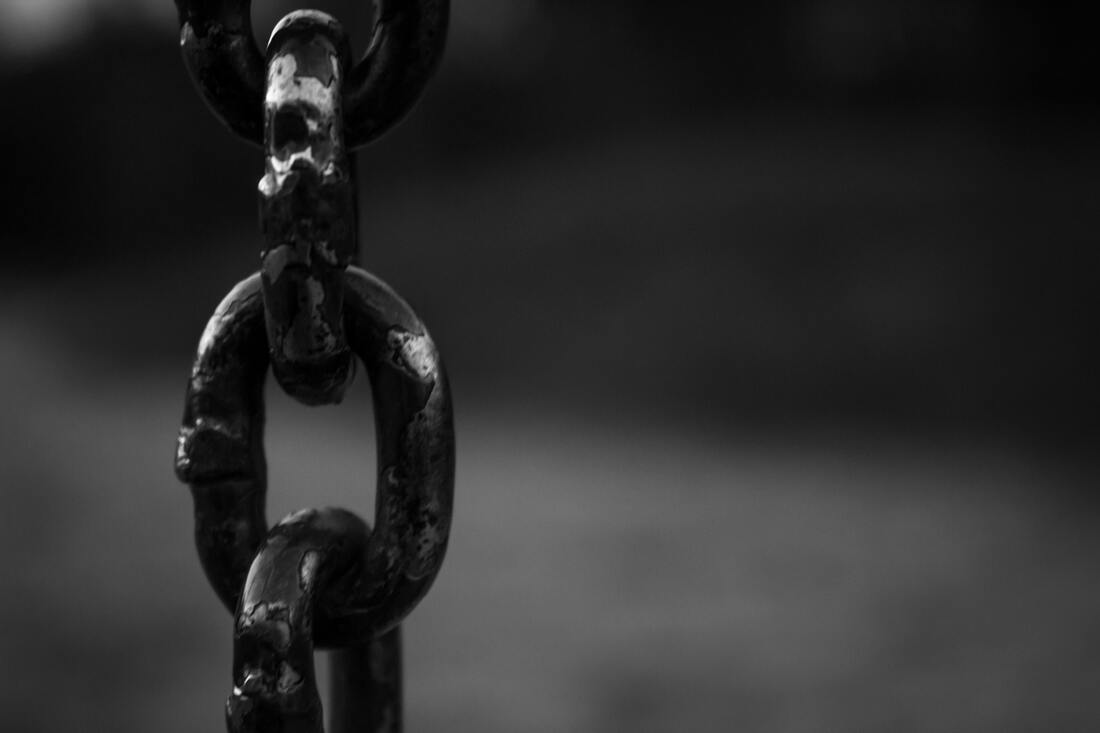
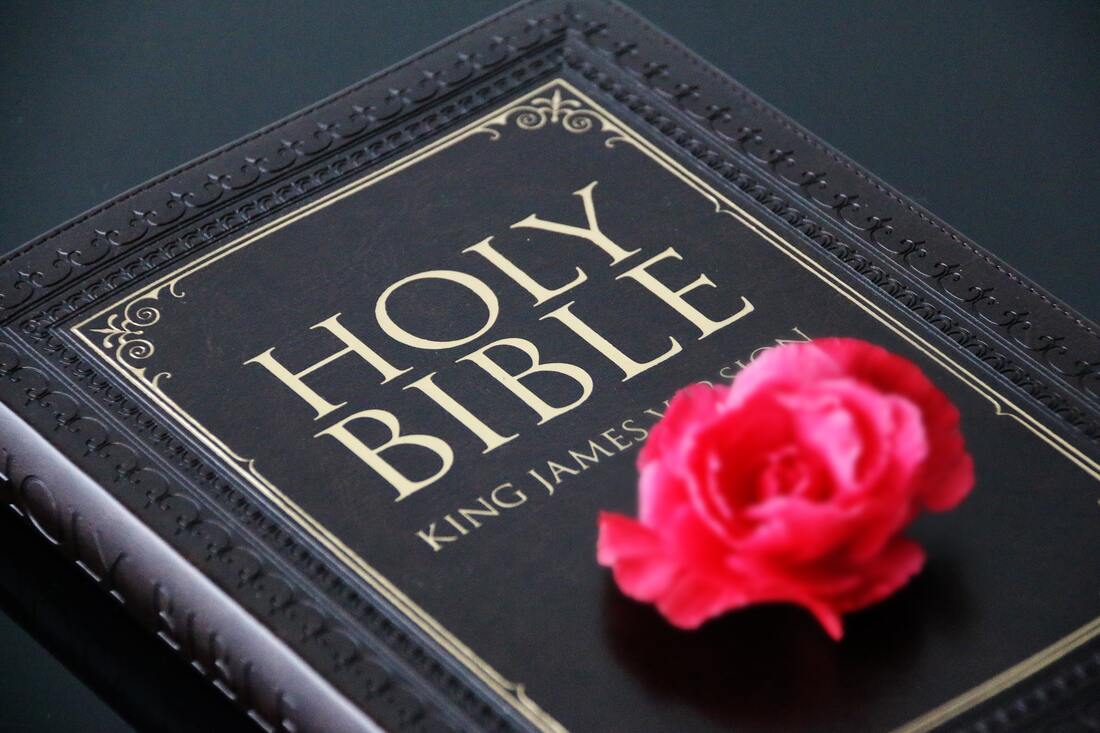
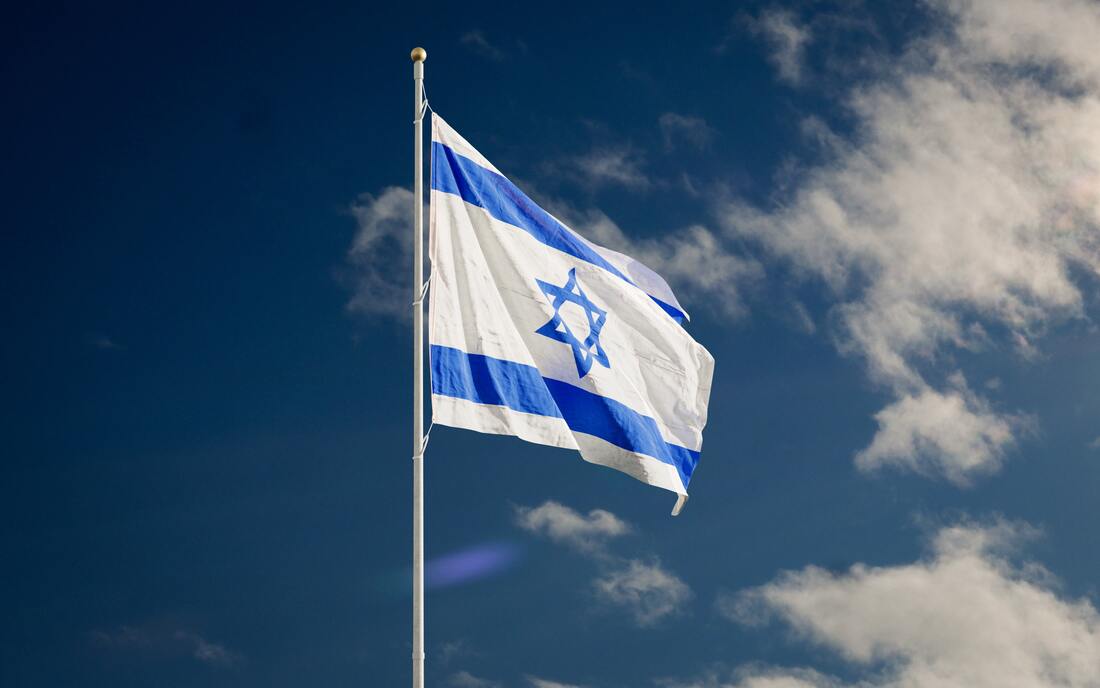
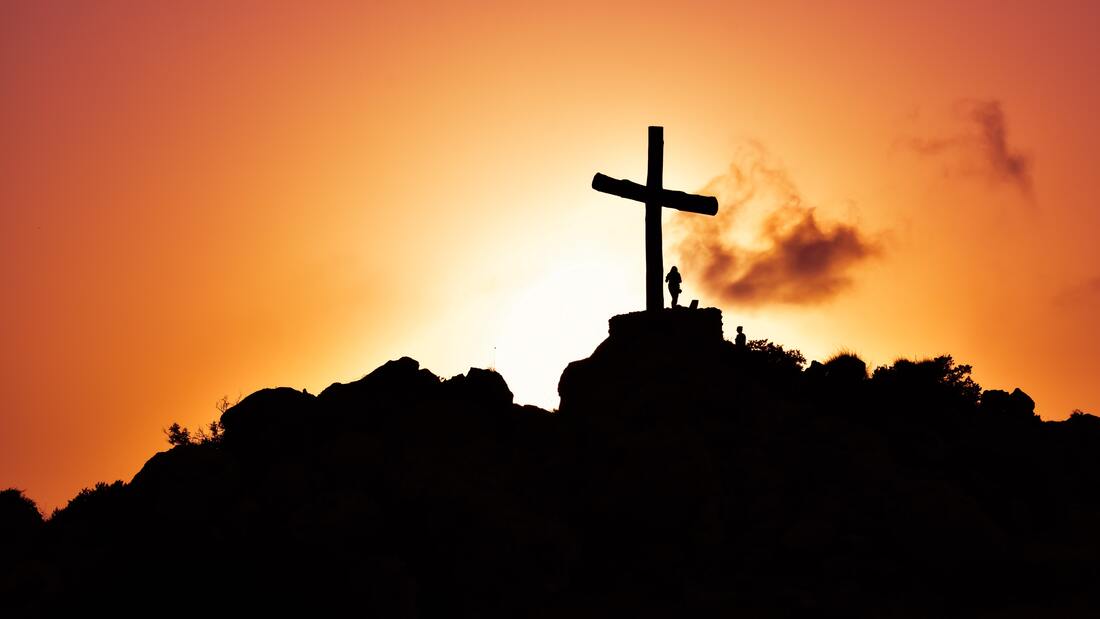
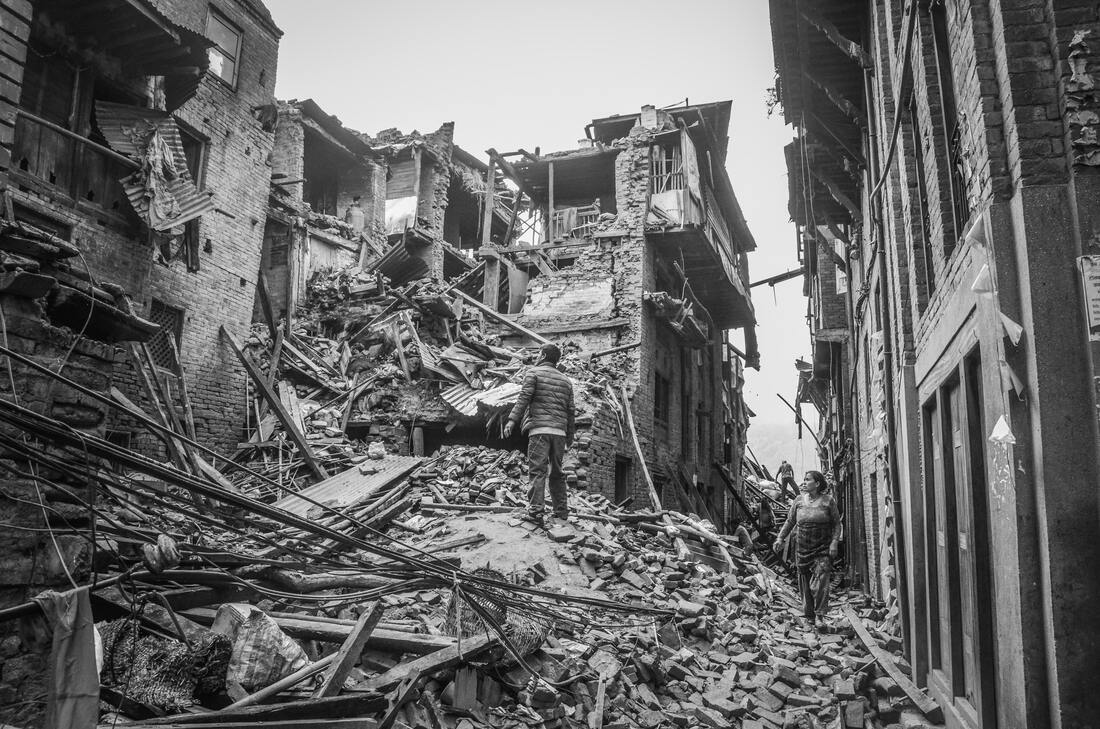


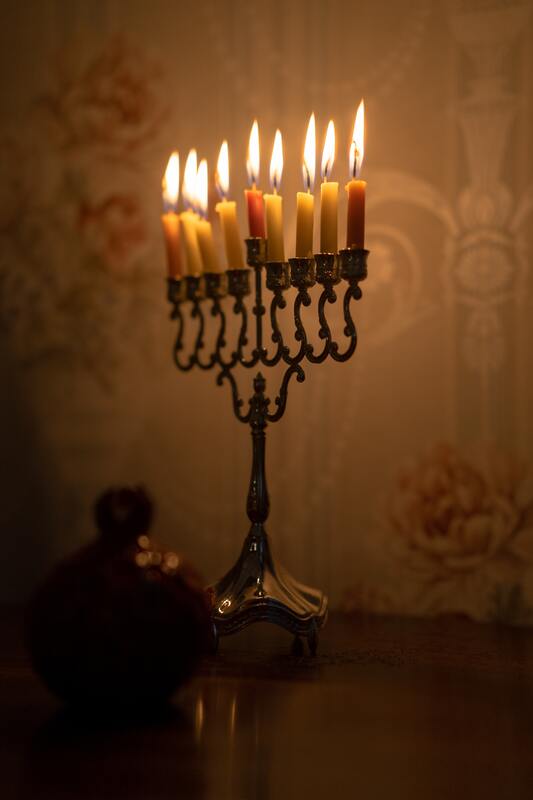

 RSS Feed
RSS Feed